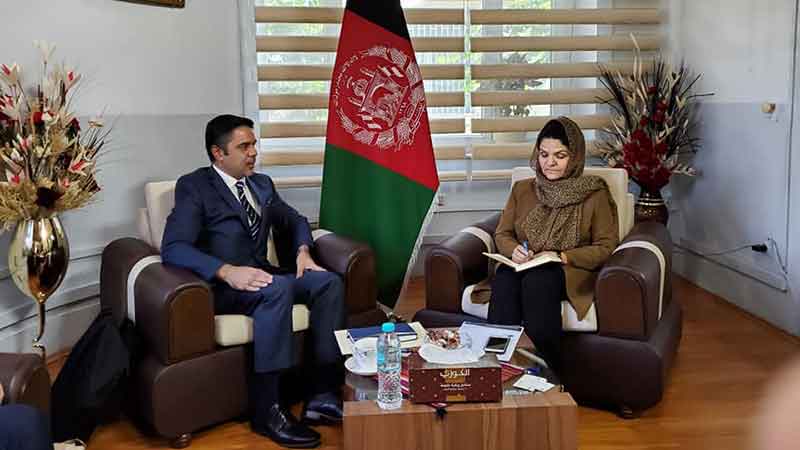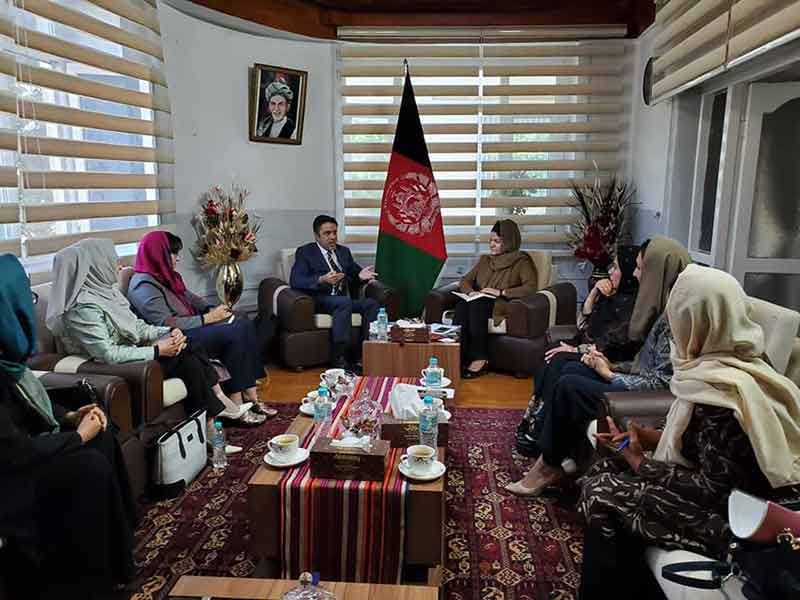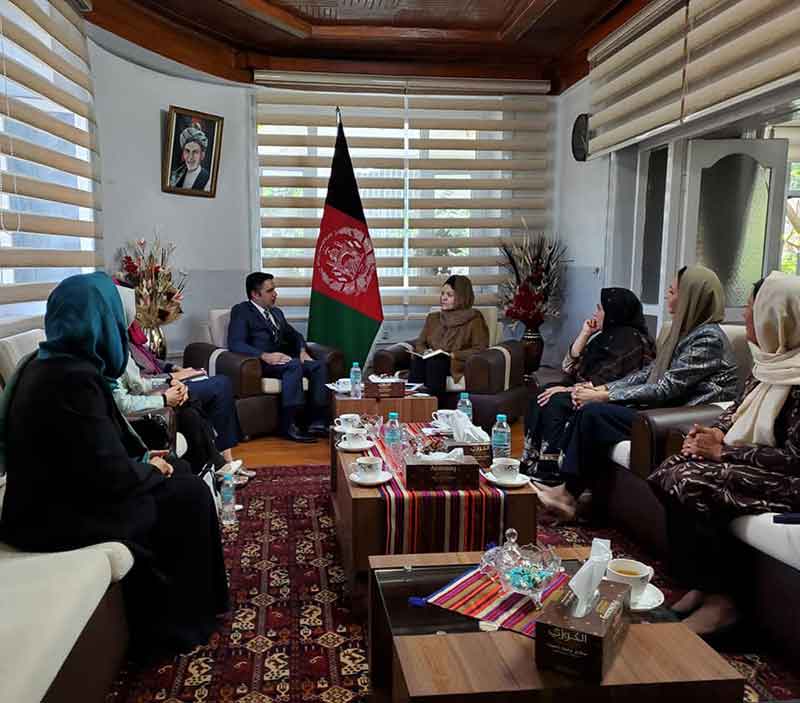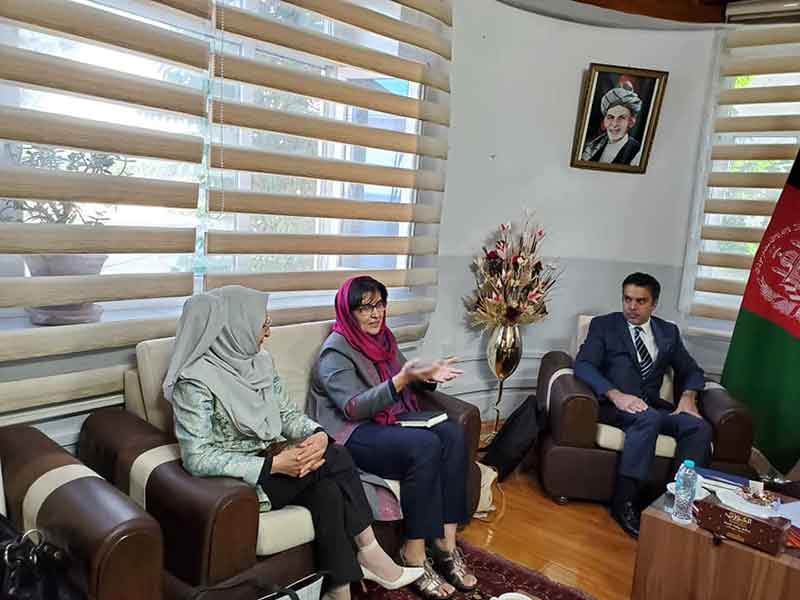May 21, 2021

Kabul: - Director-General Ambassador M. Ashraf Haidari met with Afghanistan’s Deputy Minister for Women Economic Empowerment Nazira Rahman on May 19, 2021. She hosted the Director-General to speak with a group of Afghan women in the public, private, and non-profit sectors, who work on a range of environmental issues to help Afghanistan mitigate and adapt to climate change. “I am grateful to the Honorable First Lady of Afghanistan Rula Ghani for facilitating our meeting today to discuss the impact of climate change on women as one of the most vulnerable groups in Afghanistan,” said the Director-General. Deputy Minister Rahman for her Ministry’s cross-cutting work, mainstreaming environmental protection and climate change in the Ministry’s policies and programs.
“Women across the world, especially in South Asia, are not only affected the most by climate change impact but they can also make foundational contributions to the global climate change agenda. As mothers, women can help shape the attitude of the entire household towards single-use plastics, for example, which pollutes land, air, and water, affecting public health,” said Director-General Haidari. Hence, he encouraged the Ministries of Education, Women’s Affairs, and Public Health to collaborate with the National Environmental Protection Agency of Afghanistan (NEPA) to educate Afghan children, including girls, from early on habits and attitudes that ensure the protection of environment.
The Director-General discussed the purpose of his country visit to Afghanistan, highlighting the mission of the South Asia Cooperative Environment Program (SACEP) and its many programs and projects. He noted that air, plastic, and nitrogen pollutants across South Asia, including Afghanistan, constitute a major environmental challenge, which SACEP’s national focal points (NFPs) need to address with support from SACEP and other multilateral institutions. In this regard, he discussed the Plastic Free Rivers and Seas for South Asia (PLEASE) project, funded by the World Bank and Parley for the Oceans, which SACEP implements.
He explained the three components of the PLEASE project and encouraged the participants to benefit from the project’s regional block grants and capacity building support. He invited them to visit SACEP’s website for further information on the inter-governmental organization’s activities and achievements since its establishment in 1981. Moreover, Director-General Haidari took detailed notes, as the participants discussed their views, concerns, and initiatives on the climate change and its impact on Afghanistan’s vulnerable groups, particularly women. They noted that a lack of peace and stability had continued diverting resources and attention from addressing the adverse effects of climate change, most affecting women in the Afghan context. Hence, they welcomed SACEP’s country visit as an effort to hear directly from women leaders on environment and climate change and appreciated SACEP’s gender-sensitive approach to the implementation of all its programs, including the PLEASE project.
***


